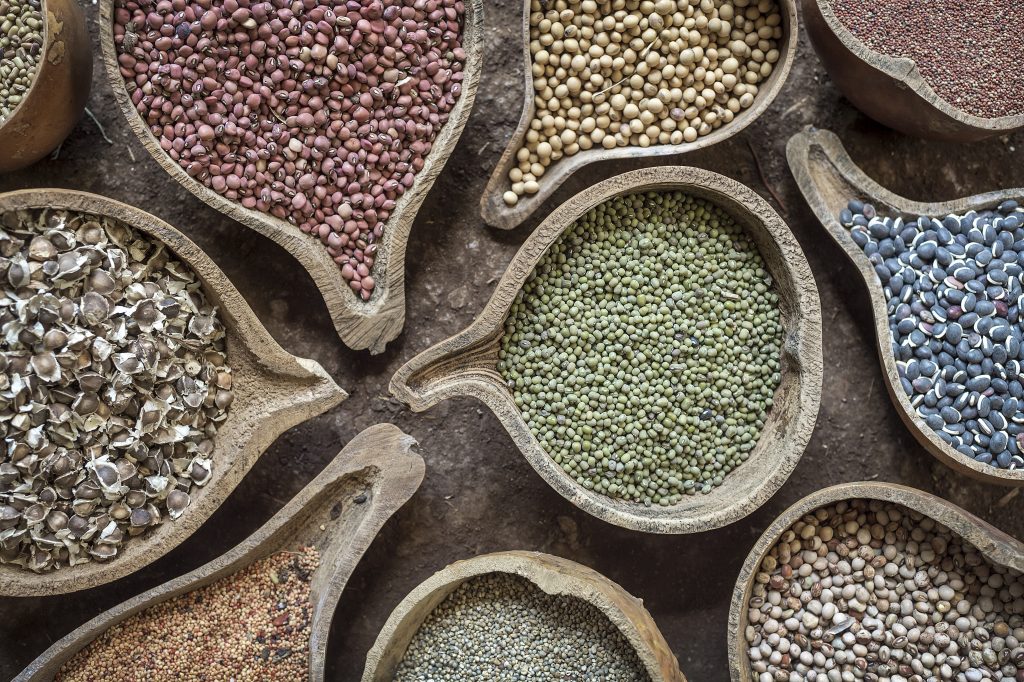Despite increased food production in the world today, it is estimated that more than 800 million people are undernourished and many more suffer from hunger and malnutrition. This paradox reaffirms that the high levels of hunger witnessed in different parts of the world have less to do with production but are more closely related to access to food, climate change, poverty and inequalities. These are worsened by the small groups – especially the multi-national corporations – that control the food system by dictating food choices, technologies, qualities and quantities of food, as well as food prices to both producers and consumers.

Food insecurity in Kenya
In Kenya, the government’s Big Four Agenda aims to reduce the number of food insecure Kenyans by 50 percent and achieve a 27 percent reduction in malnutrition among children under the age of five years. However these goals are yet to be realized as almost 1 million people suffer from food insecurity, which is only likely to worsen with the delayed onset of rains in many parts of the country. The Flagship food security project in Kenya that included the Kshs. 7.2 billion Galana Kulalu model farm has not only failed to produce the expected yields but stalled after the contractor (the Israeli Company – Green Arava) had been paid 80% of the total project costs. The failures were partly blamed on the El Niño floods and also on the disagreements between the contractor and the National Irrigation Board (NIB). In other parts of the country, the farmers are also experiencing high costs of production due to the ever-rising prices of farm inputs such as seed, fuel and fertilizer. This translates into rising costs of food, especially the maize flour, despite government assurance that the country has enough grain reserves.
Time for a new model
We can no longer continue replacing the tropical forests with new crop lands – a pattern that has been largely responsible for the loss of bio-diversity and degradation of our ecosystems. The impacts of current agricultural and food systems are likely to worsen the situation as they are economically invisible and therefore fail to capture the attention of the government and businesses. The unsustainable patterns of consumption and production (SCP) systems in national governance and sectoral policies as well as the unbridled consumerism based on the dominant linear model (“take, make, waste”) of production and consumption will only contribute to the widening inequalities in access to the limited resources.
It’s time for a new model – an agro-ecological system, among the most promising systems for increasing food production substantially and sustainably in the reality of the diminishing resources. Not only does agro-ecological science draw from social, biological and agricultural sciences, it integrates these with indigenous technical knowledge, shaping an agro-ecosystem that mimics the functioning of the local ecosystems.
The principles of agro-ecological farming
Nutrients: should be made available to the plants and the nutrient flow enhanced through recycling. This can be ensured through planting deep rooted crops/trees alongside the shallow rooted ones, using manure such as green manuring and composting.
Soil conditions: farm soils should be improved in order to retain adequate moisture, nutrients and air in order to allow for the microbial functions to take place. Manuring helps in improving the soil texture and allowing for retention of moisture, absorption and slow release of nutrients. Practices such as zero or minimum tillage reduces the loss of soil moisture and formation of hard pan that is always associated with conventional land tillage practices.
Losses: farms need to minimize the losses of solar energy, air and water through practices such as multi-storey planting, inter-cropping, mulching and timely planting – at the onset of rains.
Biodiversity: the practice of mono-culture that is prevalent in the conventional farming systems practiced by many farmers should be discouraged. Planting different crops and varieties helps minimize the risks of crop failure in case of the events such as climate related shocks or outbreak of crop pests and diseases.
Interactions: farms should harness the beneficial interactions between and among plants and animals. This could be done through companion cropping, inter-cropping, and the use of natural predators of crop pests.
Driving agroecology in Kenya
Kenya needs a movement towards agro-ecological farming systems. Adopting the principles of agroecology will ensure that farm productivity increases, the environment remains healthy, and the farmers as well as the nation will reduce their reliance on petroleum based external farm inputs. This also means that agroecology has the potential to not only ensure food security in the country, but food sovereignty as well. It therefore requires a landscape approach (how agricultural production and environmental conservation can best be integrated) to ensure that the farmers are exploiting the full potential of agro-ecological farming systems.
About SD4ALL Programme
The Sustainable Diets for All Programme seeks to improve the national and local food systems in order to achieve a more sustainable, affordable, healthy, nutritious and affordable foods for low-income earners. The programme focuses on citizen participation, lobby and advocacy (influencing policies and practices of market and government actors) and strengthening of advocacy capacities of civil society actors in implementing countries.
In Kenya, Hivos is working with Building Eastern Africa Community Network (BEACON) as the implementing partner. BEACON is a network of organizations championing sustainable resource management, resilient livelihood systems, governance and economic justice.
Story by: Gordon Kojo and Rebecca Tanui, BEACON




